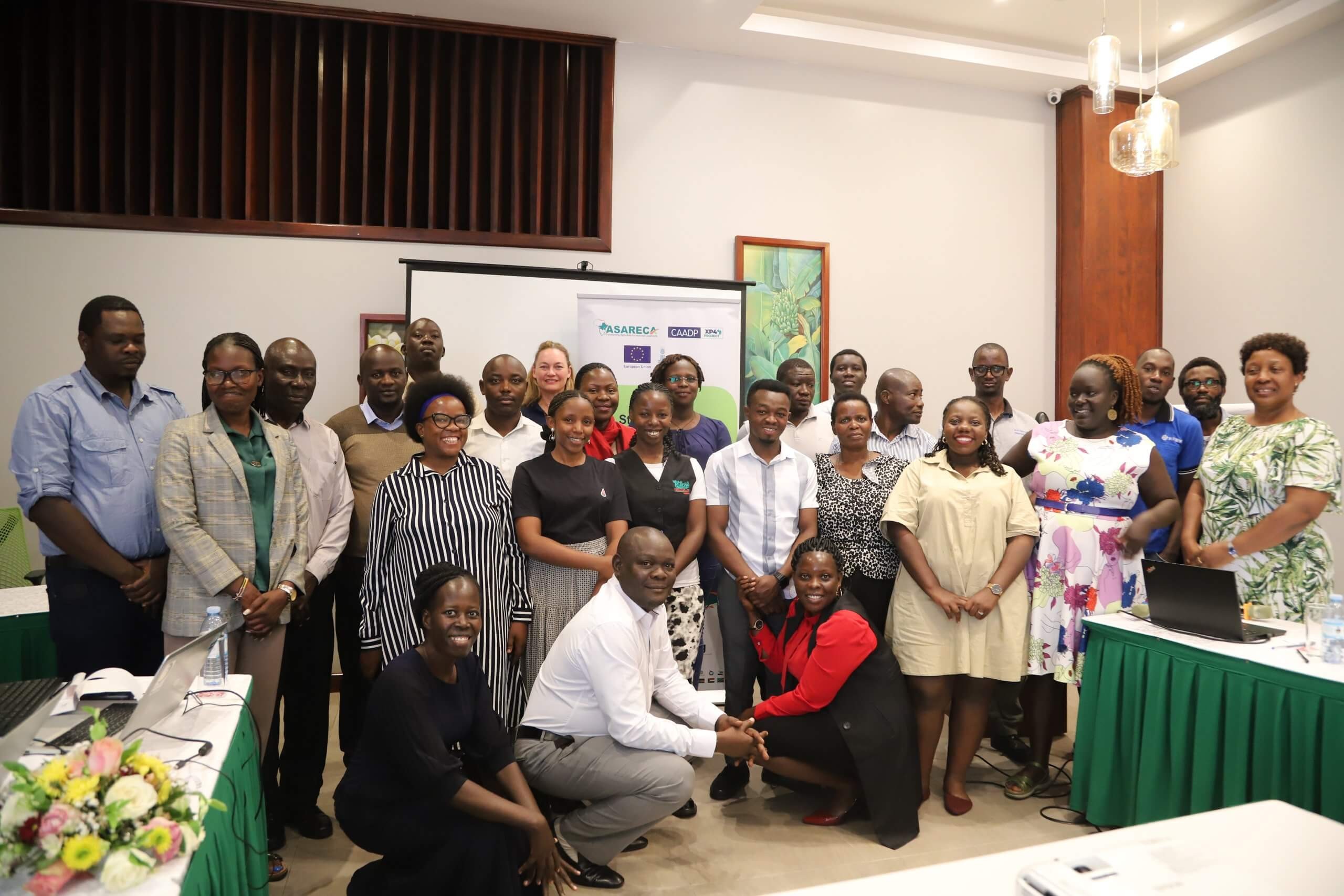WAKISO, September 8, 2025 — The National Agricultural Research Laboratories [ NARL ] recently conducted a practical training session on pest and disease management aimed at helping farmers protect their crops and build resilience against climate change.
The recent hands-on training, held at Kawanda in Wakiso district, the home of NARL, focused on Integrated Pest and Disease Management and Agroecology. It attracted participants from several countries within the Association for Strengthening Agricultural Research in Eastern and Central Africa [ASARECA], including Kenya, Tanzania, Ethiopia, Cameroon, Burundi, and host country Uganda.
Dr Everline Komutunga, a lead researcher with the National Agricultural Research Organisation [NARO], emphasised the importance of empowering farmers as a key strategy in combating climate change. NARL is an affiliate of NARO.
“Resilience is about equipping farmers with the tools and knowledge to thrive, not just survive, in the face of climate change,” she said.
The training was led by Dr Eseri Nankya, a soil and environmental scientist and lead trainer at NARO, who guided participants on improving and maintaining soil health, a fundamental pillar of agroecology that supports sustainable food production and healthy ecosystems.
“Healthy soils promote plant growth, mitigate climate change, and enhance biodiversity while reducing dependence on external inputs like pesticides and fertilisers,” Nankya explained.
NARO’s Soils, Agro-Meteorology and Environment Programme is mandated to develop and promote tools, technologies, and recommendations that improve soil and water management, encourage sustainable land use, and enhance climate change resilience.
Environmental degradation poses a significant threat to Uganda’s economy, with an estimated 12 percent of the country’s Gross Domestic Product [GDP] lost due to soil erosion, nutrient depletion, and reduced crop yields. At least 41 percent of Uganda’s land is currently degraded.
During the training, participants were introduced to innovative, nature-based solutions designed to make them champions of agroecology in their communities. Topics covered included optimising rainwater use in farming, strategies to boost productivity in rain-fed systems under changing climatic conditions, integrated nutrient management, agro-biodiversity, permaculture, and push-pull technology in regenerative agriculture.
The event brought together women and youth farmers, scientists, extension workers, and private sector actors from across Eastern and Central Africa, providing them with practical skills in sustainable crop pest and disease management and agroecological practices.
Uganda is recognised as one of the leading countries in Eastern Africa embracing sustainable farming practices such as organic agriculture, agroecology, and integrated pest and disease management, particularly in crops like maize, coffee, cocoa, avocado, vegetables, and banana.
Commonly used biological control methods introduced at the training included beneficial insects (parasitoids), predatory mites, beneficial nematodes, and microorganisms such as bacteria and fungi—like Aflasafe, to manage crop pests and diseases naturally.
https://thecooperator.news/invasive-pests-devastate-crops-in-kisoro-threatening-food-security/
Buy your copy of thecooperator magazine from one of our country- wide vending points or an e-copy on emag.thecooperator.news
